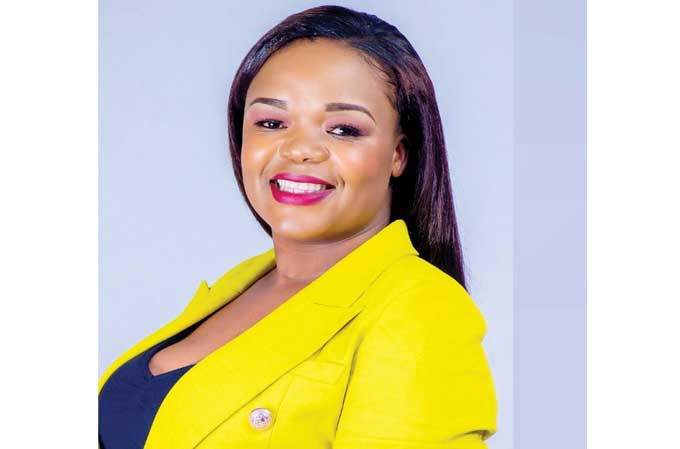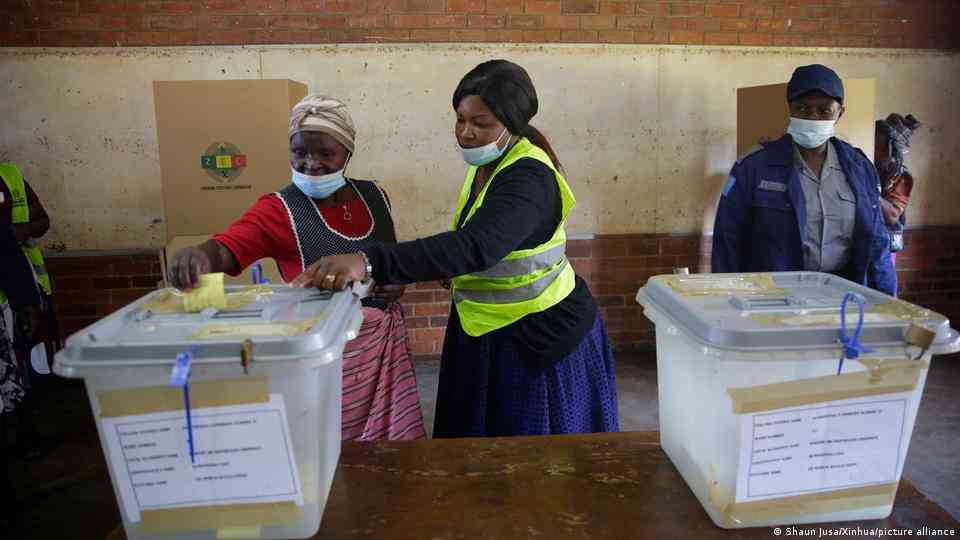
By Vanessa Gonye ZIMBABWE’S marginalised women and girls continue facing challenges in getting sanitary wear during menstrual cycles.
School girls are the most affected because many do not have access to comfortable sanitary wear such as panty-pads, cotton wool and menstrual cups, among others.
NewsDay reporter Vanessa Gonye (ND) speaks to Medecins Sans Frontieres (MSF) communications manager Grace Mavhezha (GM) on their interventions on menstrual hygiene management in vulnerable communities such as Epworth and Mbare. Zimbabwe joined the world in commemorating World Menstrual Hygiene Day on May 28, 2022.
ND: Are there any projects which you are doing to support menstrual hygiene management? If so where and how?
GM: Médecins Sans Frontières (MSF) have adolescent sexual reproductive health projects in Mbare and Epworth districts, where we provide HIV testing services, sexually transmitted infections testing and treatment, mental health and psychosocial support, contraceptives, ante-natal care support and general ailment treatment of adolescents and young people for free.
As part of the sexual reproductive health package available for adolescent girls and young women, MSF provides free menstrual hygiene management products, that is, reusable menstrual pads, reusable pants, menstrual cups, and disposable pads.
MSF, through its adolescent friendly corners at Mbare Polyclinic, Matapi Clinic and Epworth Domboramwari Polyclinic, provides adolescents and young people with the opportunity to be equipped with pad-making skills as an empowerment skill.
MSF, therefore, provides the adolescent or young person with the skills provided by in-house facilitators who are community peer educators with sewing materials, and space for the adolescent girls and boys to learn how to sew reusable pads.
- Chamisa under fire over US$120K donation
- Mavhunga puts DeMbare into Chibuku quarterfinals
- Pension funds bet on Cabora Bassa oilfields
- Councils defy govt fire tender directive
Keep Reading
MSF provides these services both at the facility and community levels for free.
At community level, peer educators provide menstrual hygiene management products in the community to adolescent girls and young women as part of their sexual reproductive health education package.
ND: How do you involve boys in menstrual hygiene management?
GM: MSF is working with boys as part of their community peer educators so that the boys can provide menstrual hygiene commodities in the communities that we work in.
Menstrual health management education is also provided to challenge taboos and negative perceptions about menstruation.
MSF works with community health clubs at the community level to involve not only boys, but fathers as well to champion menstrual health through education for behaviour change.
Recently, adolescents and young adults were trained in reusable panty-making by one of MSF’s menstrual hygiene management partner, Cycle Health Zimbabwe in Epworth.
ND: How many girls have received menstrual cups so far through this initiative?
GM: MSF has provided 5 831 menstrual cups since 2019 in Mbare and Epworth to adolescent girls. The distribution of menstrual cups is done with training on how to use, clean and re-use them.
Menstrual cups are sanitary products made for girls and women to take care of the period discharge in a hygienic way.
The cups are made with 100% medical-grade silicone and are worn in a woman’s privates to collect the menstrual blood discharge.
The advantage of the menstrual cups is that they are an environmentally friendly, hygienic, and sustainable option with one cup lasting for more than 10 years.
The menstrual cups are provided with sterilising jars for their sterilisation with boiled water for five minutes.
Sterilisation is before and after each menstrual cycle and during use, it is washable with soap and clean water.
ND: How have the menstrual cups been received? Are the recipients warming up to using them?
GM: The menstrual cups are now received better as compared to when we started the distribution in 2019.
This is because MSF is now also targeting the parents and caregivers of the adolescent girls who when we started had concerns over the intrusive nature of the menstrual cups and would discourage adolescent girls from using the cups.
However, with training and education on how to use the cups, the cups are now a product of choice.
ND: Do you have plans to reach rural areas with the programme?
GM: MSF presently is working in Mbare, Epworth districts with adolescents and young women, additionally in Beitbridge, Plumtree, and Tongogara Refugee Camp in Chipinge.
We support migrants with health issues, and in all these locations, MSF provides menstrual cups as products of choice among other menstrual health hygiene products for vulnerable women.
In other areas where MSF is not working, we call upon other stakeholders to integrate menstrual health hygiene as a crosscutting issue to support women and as MSF, we are available to also share lessons learned and best practices for stakeholders who want to support menstrual health management.
ND: Why should one opt for menstrual cups instead of pads?
GM: The general medical consensus is that menstrual cups are safe to use. If the cup is used as directed, the overall risk for adverse side effects is minimal.
It’s a safe menstrual hygiene product of choice because they are reusable and don’t have to be changed as often as other products and have reduced irritation, reduced privates dryness, less mess and odour, fewer leaks, and a longer wear time.
ND: What is your organisation’s view on the sanitary campaign in schools?
GM: In schools, MSF has been collaborating with the National Aids Council to support the school health clubs piloting the distribution of menstrual hygiene management (MHM) products as a medical necessity.
The lack of access to menstrual health hygiene products among school-age female students directly impacts the quality of their education, and well-being and studies have shown that the majority of menstruating students struggle with access to menstrual products and that many teens still feel stigma around menstruation.
Adolescent girls in schools across the country deserve to attend school without fear or shame about how menstruation might impact their education and health.
The policy on menstrual product support in schools is, therefore, an important milestone, and we call upon government to avail more resources to ensure MHM products are free or affordable and available in all school bathrooms so that our most vulnerable female students can go about their school day without interruptions or social stigma.
If girls have access to proper and comfortable sanitary wear, they will have more time in school.
- Follow Vanessa on Twitter @vanessa_gonye










